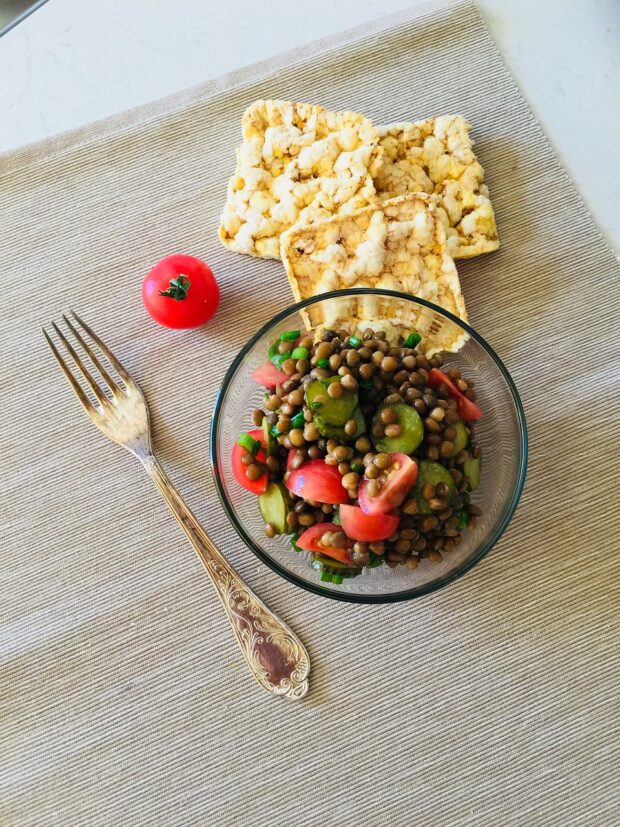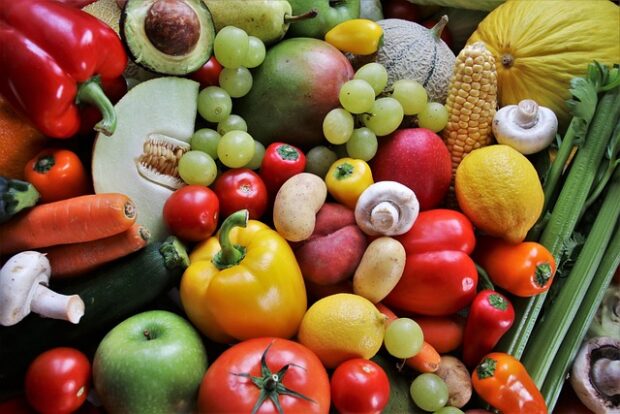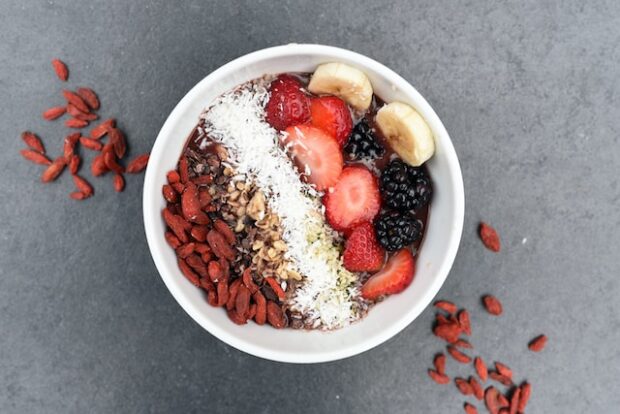Paying close attention to your diet is crucial to live a long and healthy life. The foods we consume are essential to maintaining our well-being and preventing age-related diseases. By making conscious choices about our diet, we can optimize our health and increase our chances of living a longer life. This article will explore the best foods for your long life, providing insights into the essential nutrients and dietary habits that promote longevity.
The Importance of Nutrition in Living a Long Life
Proper nutrition is the cornerstone of a healthy lifestyle. A well-balanced diet gives the body the nutrients to function optimally, boosting immunity and preventing diseases. Consuming nutrient-dense foods ensures that our bodies receive an adequate supply of vitamins, minerals, antioxidants, and other beneficial compounds that support longevity. You can take a Healthy Food from reputed Nutrition Food Store for a Long living.
Antioxidant-Rich Foods
Antioxidants protect our cells from harm caused by free radicals, contributing to aging and chronic diseases. Incorporating antioxidant-rich foods into our diet can help combat oxidative stress and promote a longer, healthier life. To boost your antioxidant intake, consider incorporating green leafy veggies, dark chocolate, berries, nuts, and seeds into your diet. These are some of the best sources of antioxidants.
Increase Longevity with Omega-3 Fatty Acids
Omega-3 fatty acids are essential fats with several health advantages, including lowering inflammation, improving heart health, and supporting brain function. Sardines, mackerel, and salmon are perfect sources of omega-3 fatty acids, which are beneficial for health. For individuals following a plant-based diet, options such as flax seeds, chia seeds, and walnuts can provide a sufficient amount of these essential fats.
Plant-Based Foods for a Longer Life
Plant-based diets have gained popularity due to their association with improved health outcomes and longevity. Vegetables, fruits, whole grains, legumes, and nuts are vital components of a plant-based diet. Including foods high in fiber, antioxidants, and phytochemicals can lower the risk of chronic diseases and promote longer life.
Whole Grains and Legumes for Longevity
Incorporating whole grains and legumes into your diet can significantly impact your longevity. Fiber is abundant in whole grains such as brown rice, quinoa, oats, and nutrients, promoting heart health and stabilizing blood sugar levels. Legumes, including lentils, beans, and chickpeas, are excellent sources of plant-based fiber, protein, and essential minerals, offering numerous health benefits.
Lean Protein Sources
Protein is an integral macro-nutrient vital in supporting and repairing body tissues. Opting for lean protein sources such as skinless poultry, fish, tofu, and Greek yogurt can provide the necessary amino acids without excessive saturated fat or cholesterol. Adequate protein intake supports muscle health, boosts metabolism, and aids in weight management.
Essential Vitamins and Minerals
A well-rounded diet should include a combination of vegetables and fruits to ensure a sufficient intake of essential minerals and vitamins. Vitamin C in citrus fruits and berries supports immune function and collagen production. Vitamin D, obtained from sunlight exposure and fortified foods, is crucial for bone health and immune system regulation. Minerals like calcium, magnesium, and potassium are essential for overall well-being.
Hydration and Longevity
Staying hydrated is often overlooked but is crucial for maintaining good health and promoting longevity. Water plays a vital role in digestion, circulation, and temperature regulation. Adequate hydration supports cellular function, detoxification, and nutrient absorption. Aim to drink at least eight glasses of water daily and adjust your intake based on activity levels and environmental factors.
Superfoods for a Longer Life
Certain foods are touted as “superfoods” due to their exceptional nutritional value and health benefits. Including these superfoods in your diet can enhance longevity and overall well-being. Some examples of superfoods include blueberries, kale, spinach, avocados, almonds, and turmeric. These foods are rich in vitamins, minerals, antioxidants, and anti-inflammatory compounds that promote longevity.
The Impact of Processed Foods
Processed foods, including sugary snacks, fast food, and processed meats, have become prevalent in modern diets. However, these foods often lack essential nutrients and contain unhealthy additives, excess salt, and trans fats. Regularly consuming processed foods can contribute to chronic diseases and reduce life expectancy. It is crucial to minimize the intake of processed foods and focus on whole, nutrient-dense alternatives.
The Importance of Portion Control
Maintaining an appropriate portion size is crucial for achieving and maintaining a healthy weight, which is closely linked to longevity. Overeating can lead to weight increase, obesity, and a raised risk of chronic diseases. Practice mindful eating, listen to your body’s hunger and fullness cues, and pay attention to portion sizes. Opt for smaller plates and be mindful of calorie-dense foods.
Mindful Eating for Longevity
Mindful eating involves being fully present during meals, savoring the flavors and textures of food, and paying attention to hunger and satiety cues. By practicing conscious eating, we can create a healthier relationship with food, reduce overeating, and make conscious choices about what we eat. This mindful approach to eating contributes to a longer, more fulfilling life.
Regular Physical Activity for a Healthy Life
To maintain good health and live longer, having a balanced diet and engaging in regular physical activity is crucial. Regular exercise helps manage weight, strengthens the heart, boosts mood, and improves overall well-being. Aiming for at least 150 minutes of moderate-intensity aerobic exercise or 75 minutes of energetic activity weekly, in addition to incorporating strength training exercises, is recommended.
Conclusion
Achieving a long and healthy life requires a multifaceted approach, and nutrition plays a fundamental role in this journey. By incorporating nutrient-dense foods, such as antioxidant-rich vegetables and fruits, omega-3 fatty acids, lean proteins, whole grains, and superfoods, into our diet, we can optimize our health and increase our chances of living a longer life. It’s not just about what you eat, friend. Remember to keep yourself hydrated, watch portion sizes, and get moving with some regular exercise. It’s all part of taking care of yourself! These dietary choices contribute to overall well-being and longevity.
FAQs (Frequently Asked Questions)
1. Are there any specific foods that can help me live longer?
While no magic food guarantees longer life, certain foods are associated with improved health outcomes and longevity. These include antioxidant-rich fruits and vegetables, omega-3 fatty acids from fatty fish and plant-based sources, whole grains, lean proteins, and superfoods like blueberries and turmeric.
2. Can a plant-based diet contribute to a longer life?
Research has demonstrated that a plant-based diet can reduce the likelihood of chronic illnesses and promote a longer lifespan. By consuming abundant fruits, vegetables, whole grains, legumes, and nuts, individuals can obtain the necessary nutrients, fiber, and antioxidants that promote optimal health.
3. How much water should I drink for optimal hydration?
It’s recommended to drink eight glasses of water daily, but the amount you need may vary depending on factors such as your activity level, climate, and overall health. Listen to your body’s thirst signals to determine how much water you should drink.
4. Is portion control important for maintaining a healthy weight?
Yes, portion control plays a crucial role in weight management and overall health. Consuming excessive amounts of food can result in gaining weight and raising the likelihood of developing chronic illnesses. Practice mindful eating and know portion sizes to maintain a healthy weight.
5. How can regular physical activity contribute to a longer life?
Regular physical activity has numerous benefits for overall health and longevity. It helps control weight, strengthens the cardiovascular system, improves mood, and reduces the risk of chronic diseases. Aim for a combination of aerobic and strength-training exercises for optimal health benefits.

















